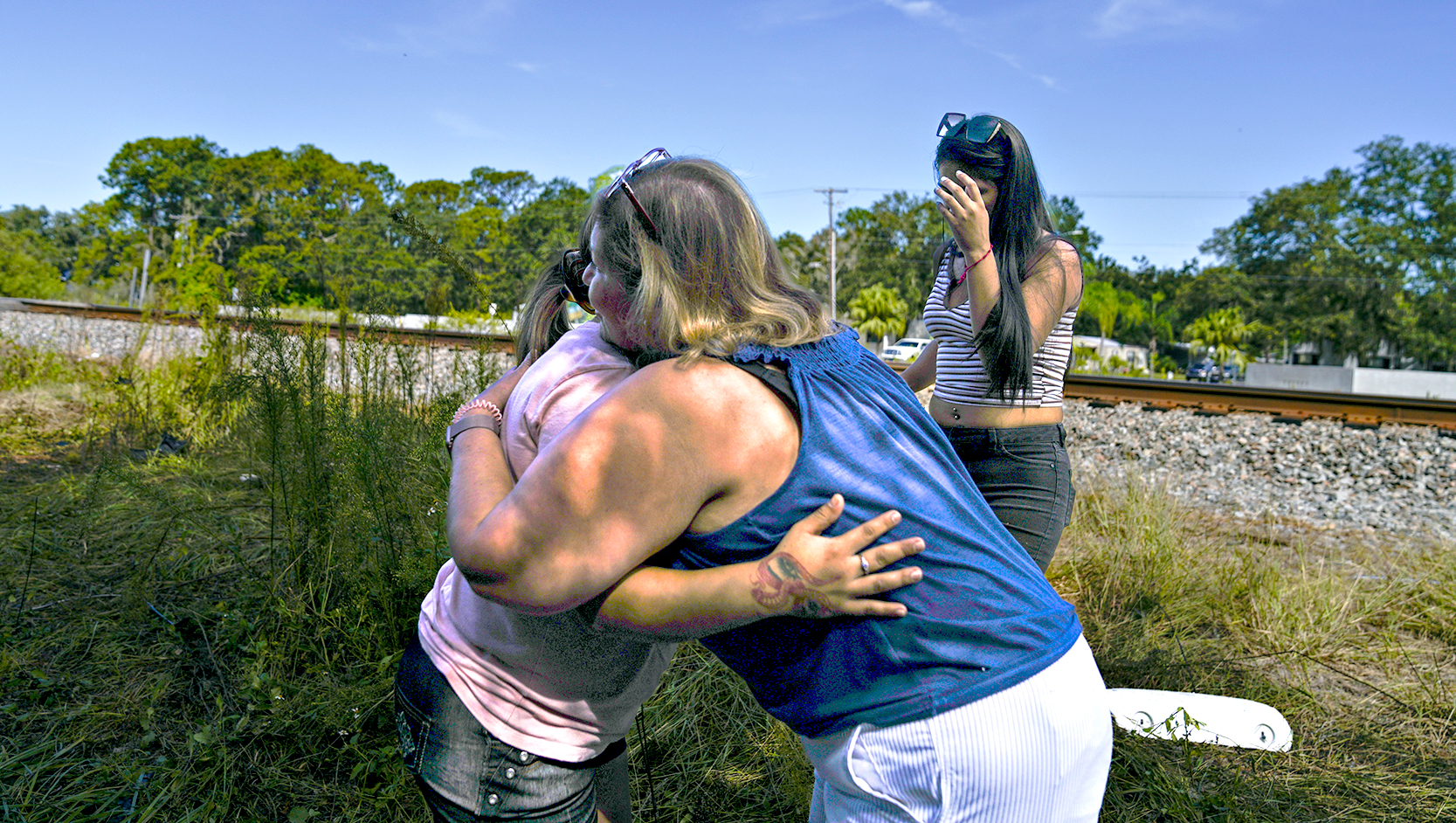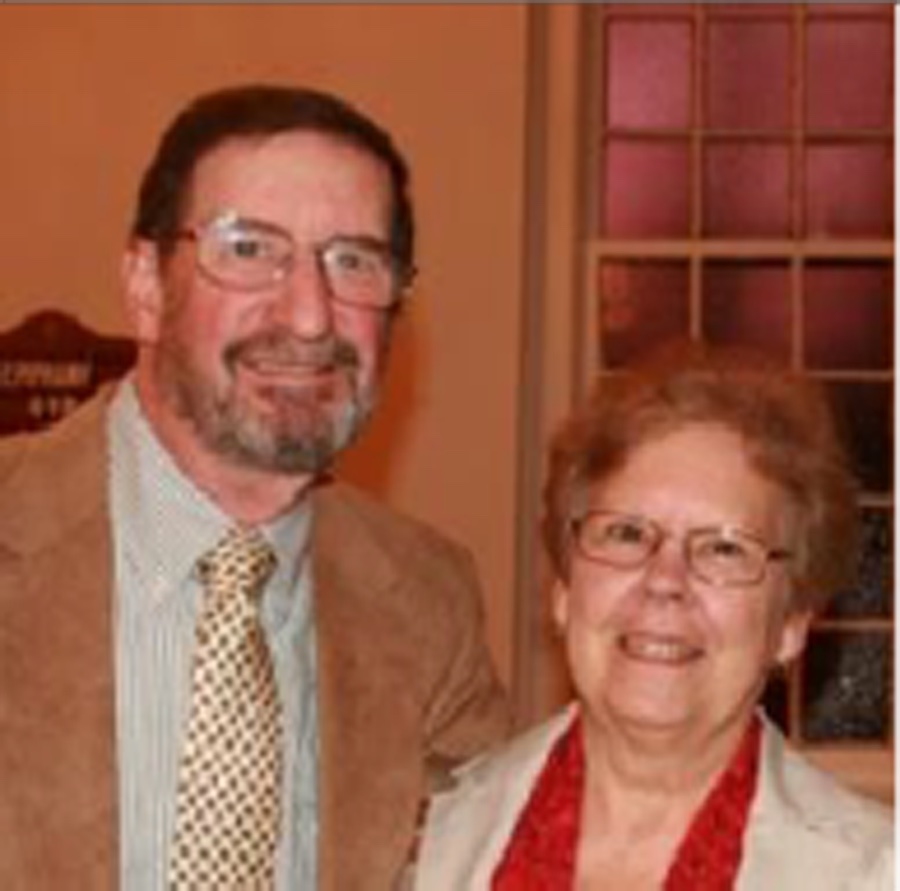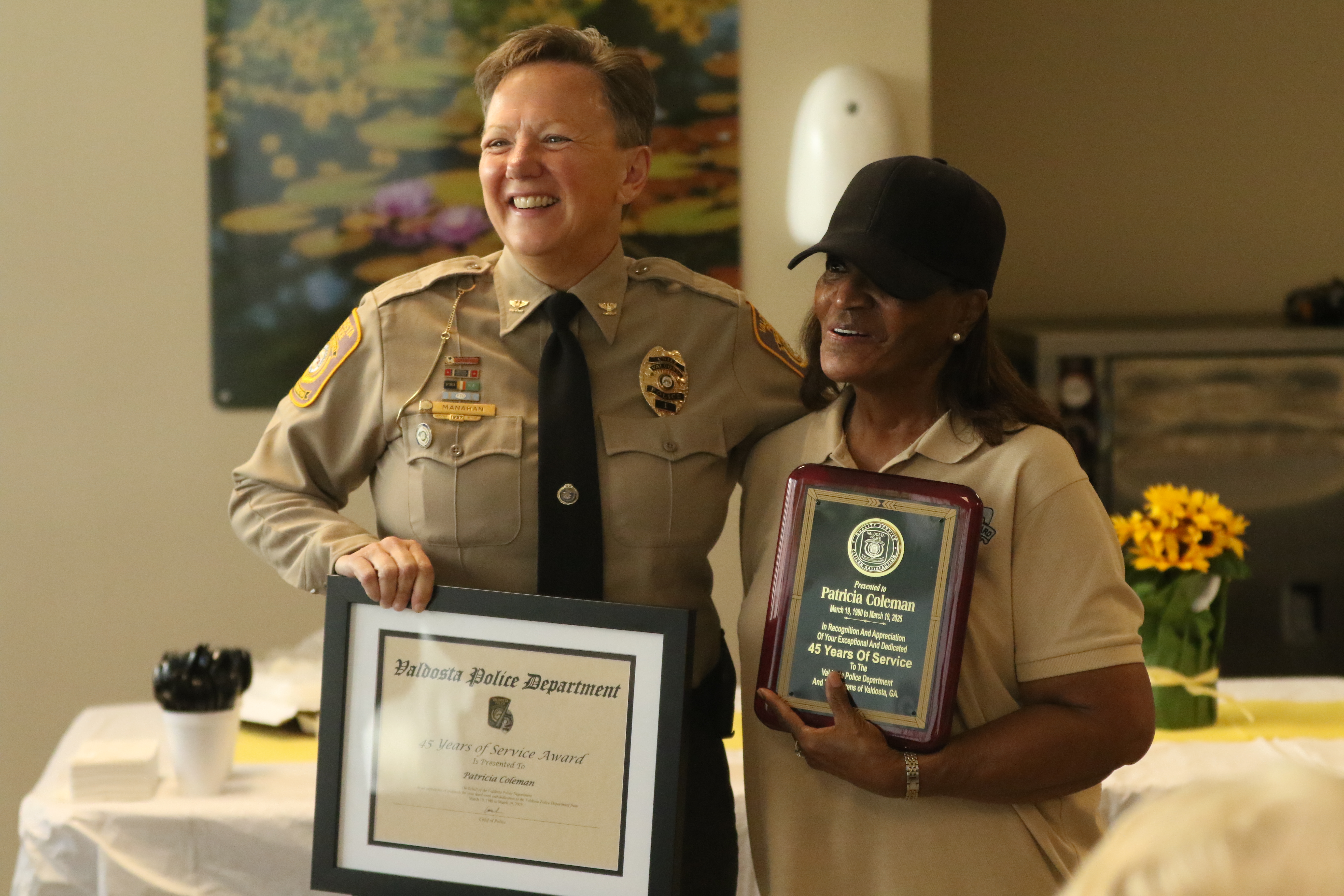In Times interview, Gov. Deal talks immigration, education, biomass
Published 7:00 am Sunday, September 18, 2011

- Industrial Authority Chairman Roy Copeland, ClientTell President Pat Sullivan, State Sen. Tim Golden and Gov. Nathan Deal share a laugh at Bas Bleu Friday.
During his Valdosta visit late last week, Georgia Gov. Nathan Deal allowed The Valdosta Daily Times an exclusive one-on-one interview.
What follows are excerpts of this Friday afternoon conversation.
THE TIMES: Why is it so important as governor to visit the entire state and see people from all areas, not just Atlanta?
GOV. NATHAN DEAL: “I think it’s important especially in these difficult economic times to find out what’s happening in the various parts of our state because we are a very large state, first of all, and we are a very diverse state. Today’s visit for example gives me a good idea of the things that are going right in this part of the state of Georgia and, certainly, we have a lot things that are going right and the importance of institutions of higher education such as your technical college and university. Sometimes you only see those statistics on paper and seeing them up close and personal makes a difference. It’s been a very delightful trip today.”
THE TIMES: What stood out most from your trip to Quitman and Valdosta?
DEAL: “Certainly the activities that are taking place at Wiregrass Technical College and their cooperation with Valdosta State University, that is somewhat unique, but it’s the kind of pattern that we like to see and one that I hope we will see taking place in other parts of the state — the cooperative efforts between technical colleges and our colleges and university system. It offers great opportunities for young people to make sure they’re not going to waste their time or money if they decide to go from one institution to the other, to have those credits be able to be transferred is an important ingredient.”
THE TIMES: There’s a perception that there is a North Georgia and a South Georgia. Do you feel like this is true and how can we improve this perception?
DEAL: “I think we ought to think of ourselves as Georgians first and foremost, but that means that we also have to recognize that the needs of various parts of the state are very different. The demands for the kind of jobs that are going to be available in parts of the state that are not metropolitan Atlanta are probably somewhat different and they have to be addressed. We sometimes look for the big companies to come to various parts of the state, but right now what we are finding is that the smaller and medium-sized companies that are willing to come to the state of Georgia. Many times those are very willing to locate in areas outside of metropolitan Atlanta and it’s important for us to encourage that.”
THE TIMES: What are the critical areas of growth both statewide and regionally that need to be nurtured?
DEAL: “Well, certainly we need to take advantage of our basic resources that we have and of course agriculture has continued to be the number one economic driver for the state of Georgia, and this part of the state is rich in that agricultural heritage. One of the things that I would like
to see happen is to have further processing of our agricultural products because many times we are producing the raw product but it is being shipped to other parts of the United States and, in some cases, overseas for further processing. If we could do that here in our state, and closer to the source of production, it would not only provide a diversified job base for rural Georgia but it will also have that value added which helps our tax base as well. Today is a good example of where I think the cutting-edge jobs are going to be and that is in the health-care industry … but we have to have a qualified and trained workforce to be able to convince manufacturers and others who are researchers or otherwise to come to Georgia. So having the kind of educational opportunities that are afforded in this part of the state will be more likely to be an ingredient in attracting other businesses in this area.”
THE TIMES: What’s your position on alternative-energy sources? Should they be promoted and funded by the government?
DEAL: “I’m pretty much a free-enterprise person, and I think that when you start having government interfere with the market place, you have some unexpected and unintended consequences. We know that one of the major agricultural products of the state of Georgia is poultry and virtually every poultry operator will tell you that the decision by the government to subsidize corn being used for ethanol production versus corn being used for either human or livestock feed stock has distorted the price structure and has placed our poultry industry, and probably other parts of our agricultural industry, in jeopardy. I do think that there is a future for renewable energy. I hope that the federal government will adopt a more realistic approach to that. For example, we’re being able to take advantage here in South Georgia of the European Union having a very broad definition of biomass and that’s why you’ve seen the teletization of pine trees in South Georgia that are being shipped to Europe. We’re benefiting from that from both the ability to use our pine trees and also the jobs that are associated with that process. Unfortunately, the definition of biomass here in the United States is very restrictive. It’s ironic that we can be shipping Georgia pine trees to England, and I’m told that they’ll be using Georgia pine trees to provide the lighting for the Olympics when they come to England, but we have great difficulty doing that here in our own state simply because the definition is so restrictive.”
THE TIMES: Your first couple of months you made a lot of bold moves, tell me a little bit about your approach to office and what’s your vision for the state of Georgia?
DEAL: “Well, sometimes things come your way and you have to deal with them directly and certainly the revision of the HOPE scholarship program. HOPE, of course, is three phases. It’s the pre-k portion. It’s the HOPE grants for those going to technical schools, and also the scholarships for colleges or universities. We were faced with the realities that, if we didn’t do something, the system was going to go bankrupt and we made promises to young people that if you keep your grades up then we will reward you with a scholarship. We think the adjustments that we made were realistic and, fortunately, we had great cooperation from the General Assembly and we helped solve that problem. Things like immigration, that’s been an issue that’s been brewing in this country for a very long time and, unfortunately, at the federal level, we have not been able to see any significant action being taken. That is the venue where they do have unquestioned jurisdiction to take action but because they have not, their inability to act on the issue has caused states to have to absorb the costs of it and that’s why you’ve seen other states, including Georgia, Alabama, Arizona, Utah and many others, that are taking action at the state level to deal with the issue because we’re the ones having to pick up the costs and the federal government, by and large, not having to pay the costs of that. That’s the reason we have addressed the issue because it is probably the most difficult social issue facing our country.”
THE TIMES: How does that tie into your vision? Many leaders from other countries are not looking for the five- or 10-year plan. They are looking 50 years into the future. What is your grand scheme for Georgia?
DEAL: “If we’re going to prosper as a state, we have to have our young people being trained to get the quality jobs that are going to maintain a lifestyle that all of us want for our state and that’s why it’s so important that what we’re doing in K-12 education is an important ingredient in that. We are a ‘Race to the Top’ state which means we have some 400 million in federal grants over the next four years to devise new and different ways of educating our young people. I think we start with having our young people trained to have the skills so that we can move not only into the latter part of this century but beyond. We also have to make sure that, in the process of doing that, we take advantage of the natural advantages that our state offers: a very diverse climate, a very diverse opportunity for lifestyles, and not think in terms of just metropolitan Atlanta or just rural Georgia. It has to encompass all of the areas of our state. So my vision is that we would have prosperous communities all across our state and that we would see a decrease in the migration away from the rural areas of our state into the more metropolitan areas. Because that means we’re not doing something right in order to keep people in the counties where they were born and where they were raised and that’s a challenge.”
THE TIMES: Soft skills training. How do you see that working to fix the education problem we have in Georgia?
DEAL: “We’re starting at every phase of the education system. Soft skills are the kind of things that make you employable and make you be able to stay employed, and it’s important that we teach those skills. But it’s also important that we provide our young people with challenge and that we increase the rigor in our educational process. Sometimes we get caught up in things that are not important and we tend to take the easy way out. The truth of the matter is that educational demands are going to continue to accelerate and if we’re not willing to embrace that then our state will be left behind. So I want us to continue to move forward on teaching young people a rigorous educational menu that is being offered now and to also acknowledge that the traditional way of delivering education is probably not going to be where we have to go. We’re already seeing some great examples in some cases, both inside our public schools but primarily in some of our charter schools where they are approaching the delivery mechanism very differently and they are having great success. I think we have to take advantage of that. Sometimes we get stuck with old ideas about what education has to do. Class size is one of those examples. I admit that you don’t want to get a teacher loaded down with so many students that it’s impractical to deal with them. But the reality is, when you look at higher education, there’s a known factor that certain courses can be delivered with a larger class setting, and I would much rather have a situation where a very good teacher is paid additional sums to teach a larger class if they can do it with a better quality than perhaps a teacher who does not have those skills and was doing it in a smaller classroom.”
THE TIMES: The VSU Health Sciences and Business Administration building. Did the community sell you on the idea?
DEAL: “I certainly think that’s an important part and we are currently working on our bond packages going to be presented to the General Assembly at the regular session at the first of the year and I have been duly impressed with the need. We’re working on that.”
THE TIMES: What struck you as interesting about the collaborative effort behind all of Lowndes County and Valdosta leaders? Is that important for a community like ours to be able to come together to handle issues?
DEAL: “Very definitely. First of all, it’s efficient to do it that way. It is more convenient for people to take advantage of educational opportunities. And I think that what has taken place at Wiregrass and VSU of working cooperatively in a collaborative effort is the model that I would like to see us have all across our state.”
THE TIMES: Is Georgia going to be geared more towards the technical side of post-high school education rather than the traditional college route?
DEAL: “That’s a very good question. I recently attended a Southern governors conference with both Democrat and Republican governors and the experts that were talking with us about the future of education told us that approximately 50 percent of all jobs in the future are going to be in what they call those middle-skill areas. That being those that don’t necessarily require a college degree, but that they are technical skills that make you employable. So it is important that our technical schools continue to do a very good job and I have been very impressed with what they are doing. They are faced with challenges as they have seen their enrollment increased because of the downturn of the economy and people losing jobs and realizing that they need to be retrained. It has put pressure on them. We have to be sensitive to that, and I do think that we’re going to see that probably continue because we know, that the world we live in now, that people are going to change careers many times during their productive lives and, most of the times, when they change those careers, they require some additional training to move to the next job. It may be our colleges that do that, but it’s certainly going to be in our technical colleges if they do that.”
THE TIMES: Your proposal to have probationers replace illegal immigrants for farm labor. Did that idea work? If it didn’t or it did, what’s going to happen next year during the picking season?
DEAL: “Well, it worked with some success. I think there was a great deal of skepticism about it on whether these people will work and there is a threat associated with their presence. We have to remember that probationers are not under arrest. They are free in our society. They do have a mandate as a part of their conditions of probation or parole that they have a job. I think the untold story is that we not only have those probationers working in a variety of different things around our state, we actually have prisoners working in private industry in our state. We have at least one major poultry manufacturer that uses prison labor and they are brought in. They are supervised, and I think that is a model we need to look at. First of all, these are individuals who want to work and they get to keep a small portion of the salary that they earn. They are allowed to earn money that then they can pay restitution for the crimes they may have committed, pay child support because most of them do have children that they are obligated to support and then, a small portion of it, they get to keep when they get out. Plus they’re learning a skill. I think that if we handle it discreetly and educate everybody as to what the possibilities are, then we may have some real opportunities. I am talking with the Department of Corrections and we’re going to try and get some of those stories told so people feel a little more comfortable about those possibilities.”
THE TIMES: How are we going to address the large number of incarcerated citizens and decrease those numbers?
DEAL: “I think one of the better things we can do is have accountability in courts whether they be drug courts, DUI courts, mental-health courts, the like. We know that they work. We know the recidivism rate, if they go through those approaches rather than directly into the prison system. We have less recidivism. We break the addictions, and we’ve got to work very closely on that.”
THE TIMES: How are we going to address the standard of living in Georgia?
DEAL: “You start with education. We’ve got to improve our educational quality, and the best way to improve the quality of our life is to have people able to get good jobs that will pay more money. That will do it quicker than anything else. That is really the secret. We can’t depend on government to lift us out of poverty. We’ve got to depend on people working and improving their own lifestyles.”





